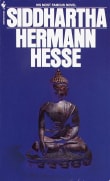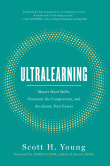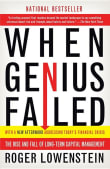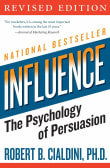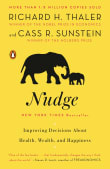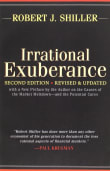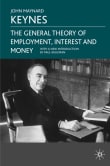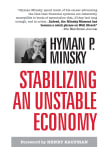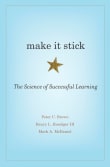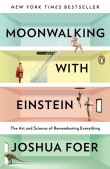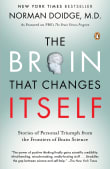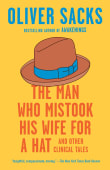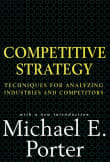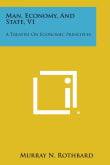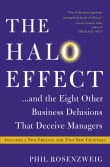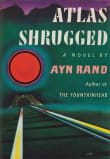Thinking, Fast and Slow
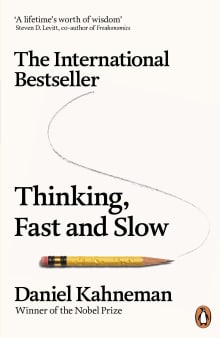
Book description
The phenomenal international bestseller - 2 million copies sold - that will change the way you make decisions
'A lifetime's worth of wisdom' Steven D. Levitt, co-author of Freakonomics
'There have been many good books on human rationality and irrationality, but only one masterpiece. That masterpiece is Thinking, Fast and…
Why read it?
46 authors picked Thinking, Fast and Slow as one of their favorite books. Why do they recommend it?

This book transformed my understanding of human cognition. I love how Daniel Kahneman delves into the dual systems that drive our thoughts—intuitive and deliberate.
This book helped me recognize cognitive biases and informed how I develop AI technologies that align with human behavior. It reinforced the importance of designing AI that complements our natural thinking patterns.
From Karl's list on teach you to embrace the future.

I love any book that gives me insight into the mind, and this book taught me so much about the tricks of how our minds tackle big and everyday decisions; I recommend it to people on the street.
Kahneman was the first and probably only psychologist to win a Nobel Prize in economics, and it was for this book.
From Liam's list on see a bigger picture of the world.

This was a rare gift for me as it took the vast experience from his career and his knowledge of the field of behavioural science, and presented and summarised so many of the fundamentals. Daniel Kahnemen is one of the founders of behavioural science and the idea that the way we behave is so often not as rational and convenient as economists would like to believe.
I'm used to reading research papers, and this book can be dense at times, but that's also what makes it so valuable—its depth makes it a fantastic reference for learning how we make important…
From Jono's list on changing how you look at the world and yourself.

I love this book because it makes me realize how easily we humans jump to the wrong conclusions. What might seem like effortless common sense is often completely incorrect. I really appreciate gaining insight into how we assess risk and opportunity and how, as a result, we can be duped into irrational choices. I found the whole topic of the pros and cons of heuristics really interesting.
From Diana's list on our thought-provoking socio-economic system.

Professor Kahneman’s ideologies on decision-making have helped me in business and my personal life.
His insights have enhanced my decision-making process and helped me navigate the strait between instinct and decision. His insights have encouraged me to delegate routine decisions, allowing me to reserve my mental energy for the most critical choices.
From Scott's list on helping you be your best self.

I laughed at Kahneman’s straightforward explanation of how my brain works without making me feel stupid. Apparently, humanness is normal, thank goodness.
He explains the complexities of System 1 and 2 thinking through storytelling, demonstrating what he is teaching about how our brains work. Even though I’d learned about these concepts through academic reading, I now feel like I “get it,” although even that statement is a product of both System 1 and 2 thinking and availability bias. Key takeaways: Intelligence and rationality are not the same, and the research is so substantial in how Systems 1 and 2 work…
From Anna's list on navigate danger in humanitarian work.

Based on scientific arguments, this book shows how strongly incorrect drives are stuck in our brains, causing us to think that we are making a logical decision, while this is not the case.
The best example I tell everybody: Look at your attic that you want to clean out. You empty your cupboards, and almost always, a large part goes back into the cupboard because it is a waste. But if you are offered the same stuff for free, you usually don't want it.
The message of this example: Your brain finds it difficult to get rid of something you…
From Gerard's list on trying to explain basics in human behavior and decision making in a scientific manner.

I found this book fascinating because it helped me understand how our brains work, especially when to trust gut-driven judgments and when to question them. This informed writing I was doing on pattern recognition and its importance in strategic thinking.
Leaders have to make judgment calls quickly, but it's important to know when one’s thinking isn't reliable enough. Learning about the two contrasting thinking systems helped me be more thoughtful about my own choices and how to advise the leaders I coach and educate about making better decisions.
From Michael's list on books for aspiring strategic thinkers.

What I like about this book is that it digs into the cognitive processes that help explain our behaviors and how we come to understand the world.
The big takeaway from this book for me is that people don’t always think through their choices, and that is hardwired into our brains. It’s really important to understand that when you start thinking about how to get people to change their behaviors.
From Luke's list on how ideas are turned into actions.

I found this to be both a provocative and extremely useful book. Kahneman describes two very different human modes of thinking and decision-making.
Slow thinking is analytical and more objective, but it takes a lot of mental energy—and humans are essentially lazy animals. Fast thinking, by contrast, is fast, intuitive, and grounded more in experience and emotion.
Based on this dichotomy, Kahneman explores the different kinds of biases we are prone to unless we’re very careful. I found the author’s concepts applicable to a wide range of situations, including investing and business decision-making.
Want books like Thinking, Fast and Slow?
Our community of 12,000+ authors has personally recommended 100 books like Thinking, Fast and Slow.
